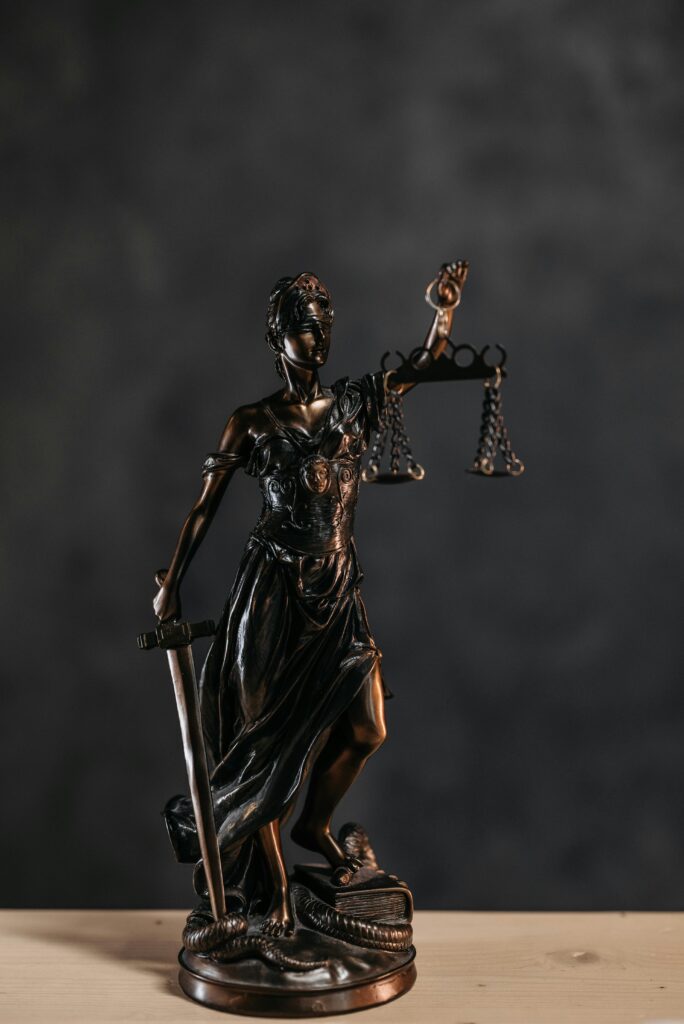Published on: 11th November 2025
Authored by: Nandini Agarwal
Bharati Vidyapeeth University
ABSTRACT
The case of Chitresh Kumar Chopra v. State involves allegations of abetment of suicide. On July 4, 2002, Rahul Kaushik reported that his father, Jitender Sharma (hereinafter referred to as deceased), committed suicide using his licensed pistol. Deceased had business dealings with the appellant, Jahuruddin, and Mahavir Prasad, and his suicide note indicated that monetary issues with them led him to take his own life. The Additional Sessions Judge initially found enough grounds to frame charges but later acquitted them. Dissatisfied with this judgment, the appellants appealed to the High Court, which upheld the trial court’s decision. Eventually, the Supreme Court reviewed the case, agreeing with the trial court’s findings and dismissing the appeal for lack of merit.
CASE DETAILS:
- Case Title: Chitresh Kumar Chopra v State[1]
- Citation: (2009) 16 SCC 605[2]
- Bench: J. H.L. Dattu, J. DK Jain[3]
- Date of Judgment: 10 August 2009[4]
- Court: Supreme Court of India
- Applicable Law: Section 306 and 34 of the Indian Penal Code, 1860[5]
- Appellants: Chitresh Kumar Chopra
- Respondent: State (Govt. Of NCT of Delhi)
FACTS OF THE CASE
The case of Chitresh Kumar Chopra v State involves the allegation of abetment of suicide. On 4 July 2002 Rahul Kaushik lodged a FIR with the Police Station Mehrauli stating that his father Jitender Sharma (hereinafter referred as deceased) committed suicide by shooting himself with his licensed pistol.[6] The deceased was partner with the appellant in this appeal that is, Jahuruddin and Mahavir Prasad and all three of them were engaged in the real estate business. Suicide note left behind by the deceased mentioned that there was some monetary transaction between them and thus, they abetted the deceased to commit suicide. The appellant in furtherance of the common intention mentally tortured the deceased and abetted the deceased to commit suicide.
The deceased in his suicide note quoted that “C.K. Chopra’s money has been given by Jahur, Jahur and Chopra are saying things against me and are thereby troubling me and pressurizing me to write all this. I am stressed and therefore going away.”[7]
After completing the investigation a charge sheet was filed by the police against the said three persons including appellant for committing offences punishable under Section 360 read with Section 34 of the IPC. As per the charge sheet, case is regarding dispute between the deceased and appellant regarding the share of profits from the sale of land and the dispute was created as the deceased share was reduced from 25% to 10% in the favour Tegh Singh Chabbra and the appellant. The deceased was mentally harassed and pressurized by the appellant and left with no choice committed suicide.[8]
Additional Sessions Judge felt satisfied that there were sufficient material on record for framing charges against them and hence, they were acquitted for the offence. Not satisfied with the judgment they filed an appeal in the High Court where the High Court declined to interfere with the order framing charges against them and thereby, they filed an appeal in the Hon’ble Supreme Court.
The Supreme Court heard the witness called Kartar Singh who stated that “he heard CK chopra saying to the deceased that he would ruin him if he did not give up his claim for 25% and did not agree to accept 10%.”[9] Another witness Padam Bahadur stated that “he overheard Jahur and Mahavir telling deceased that Chopra asked them to say that this was the last opportunity to sign the document and that if he wanted to live in the society he should sign the agreement or should die by taking poison.” [10]
The Supreme Court after hearing these witnesses concluded that the decision made by the trail court regarding the charges framed against the appellant was correct. It additionally stated that the High Court was justified in dismissing the review petition keeping in mind the scope of the Revision powers of the High Court. Hence, the court came to the conclusion that they did not find any merit in the appeal and thereby, the appeal was dismissed.
ISSUES
- Whether the appellant along with the other two accused committed the offence in furtherance of common intention and thereby abetted deceased to commit suicide?
- Whether there is sufficient material on record to constitute offence under Section 306 of the IPC?
- Whether the trial court was correct in law in coming to the conclusion that a case for framing charge against the appellant has been made out?
- Whether the High Court decision to dismiss the Revision Petition correct?
PETITIONER’S ARGUMENT
- Mr. Ranjit Kumar appearing on the behalf of the appellant argued that the material brought on record by the prosecution for the offence under Section 306, IPC is not made out against the appellant.
- He further argued that referring to the undated suicide note and documents referring to the final settlement, learned senior counsel was at pain to explain that there was some settlement between the deceased and the appellant where under it can be proved that the deceased was forced to sign his shares in the favour of Tegh Singh Chabbra; he was of the opinion that the settlement does not show any instigation or any conspiracy on the part of the accused because of which the deceased committed suicide.[11]
- He also argued that as per the suicide note deceased owed money to the appellant and they therefore, would not encourage or provoke their debtor to commit suicide to lose their money.[12]
RESPONDENT’S ARGUMENT
Mr. Mohan Jain, Additional Solicitor General, appearing on behalf of the respondent asserted that there was ample material on record to prove that the appellant abetted the deceased to commit suicide. [13]
He further submitted that the trial court did not commit any illegality in framing the charges against the appellant and also quoted that the High Court’s decision to dismiss the review petition was also justified keeping in mind that the scope of revision s very limited.[14]
LEGAL FRAMEWORK
The court while hearing the matter stated that for the offence to be committed under Section 306 of the IPC, the prosecution has to prove :
“i)that a person committed suicide
- ii) that suicide was abetted by the accused
For an offence to be committed under Section 306 of the IPC there must be abetment for the commission of the crime” [15]
Hence the question before the court in question was whether the allegations levelled against the appellant in the FIR and the material collected during the course of investigations, would attract any one of the ingredients of Section 107 IPC?[16]
The court was of the opinion that the words uttered in the spur of moment or in a heated argument are not said with mens rea and the burden of proof lies on the prosecution to prove the circumstances that led the deceased the extreme step of ending their life. The court stated that the in the present case, apart from the suicide note, statements recorded by the police during the course of investigation, tends to shoe that the deceased was put under the tremendous pressure by the accused including the appellant to take the extreme measure of committing suicide which he was perhaps not willing to do.[17]
RATIO DECIDENDI
Though the term instigate was not defined in the IPC. The meaning of the said word was explained in the case of Ramesh Kumar v State of Chhattisgarh where RC Lahoti, J. Speaking for a three judge bench stated that instigation is to goad, urge forward, provoke, incite or encourage to do “an act”.[18] To satisfy the requirement of “instigation”, though it is not necessary that actual words must be used to that effect or what constitutes “instigation” must necessarily and specifically be suggestive of the consequence.[19]
In Som Nath Thapa & Ors. (supra), a three-Judge Bench of this Court explained the meaning of the word “presume”. Referring to dictionary meanings of the said word, the Court observed thus:
“…if on the basis of materials on record, a court could come to the conclusion that commission of the offence is a probable consequence, a case for framing of charge exists. To put it differently, if the Court were to think that the accused might have committed the offence it can frame the charge, though for conviction the conclusion is required to be that the accused has commuted the offence.”[20]
FINAL ORDER
The Supreme Court heard the witness called Kartar Singh who stated that “he heard CK chopra saying to the deceased that he would ruin him if he did not give up his claim for 25% and did not agree to accept 10%.”[21] Another witness Padam Bahadur stated that “he overheard Jahur and Mahavir telling deceased that Chopra asked them to say that this was the last opportunity to sign the document and that if he wanted to live in the society he should sign the agreement or should die by taking poison.” [22]
The Supreme Court after hearing these witnesses concluded that the decision made by the trail court regarding the charges framed against the appellant was correct. It additionally stated that the High Court was justified in dismissing the review petition keeping in mind the scope of the Revision powers of the High Court. Hence, the court came to the conclusion that they did not find any merit in the appeal and thereby, the appeal was dismissed.
[1] Chitresh Kumar Chopra v State (2009) 16 SCC 605
[2] Chitresh Kumar Chopra v State (2009) 16 SCC 605
[3] Chitresh Kumar Chopra v State (2009) 16 SCC 605
[4] Chitresh Kumar Chopra v State (2009) 16 SCC 605
[5] Indian Penal Coe 1860
[6] Chitresh Kumar Chopra v State (2009) 16 SCC 605
[7] Chitresh Kumar Chopra v State (2009) 16 SCC 605
[8] Chitresh Kumar Chopra v State (2009) 16 SCC 605
[9] Chitresh Kumar Chopra v State (2009) 16 SCC 605
[10] Chitresh Kumar Chopra v State (2009) 16 SCC 605
[11] Chitresh Kumar Chopra v State (2009) 16 SCC 605
[12] Chitresh Kumar Chopra v State (2009) 16 SCC 605
[13] Chitresh Kumar Chopra v State (2009) 16 SCC 605
[14] Chitresh Kumar Chopra v State (2009) 16 SCC 605
[15] Indian Penal Code 1860, s 306
[16] Chitresh Kumar Chopra v State (2009) 16 SCC 605
[17] Chitresh Kumar Chopra v State (2009) 16 SCC 605
[18] Ramesh Kumar v State of Chhattisgarh (2001) 9 SCC 618
[19] Ramesh Kumar v State of Chhattisgarh (2001) 9 SCC 618
[20] State of Maharashtra v Som Nath Thapa & ors (1996) 4 SCC 659
[21] Chitresh Kumar Chopra v State (2009) 16 SCC 605
[22] Chitresh Kumar Chopra v State (2009) 16 SCC 605




